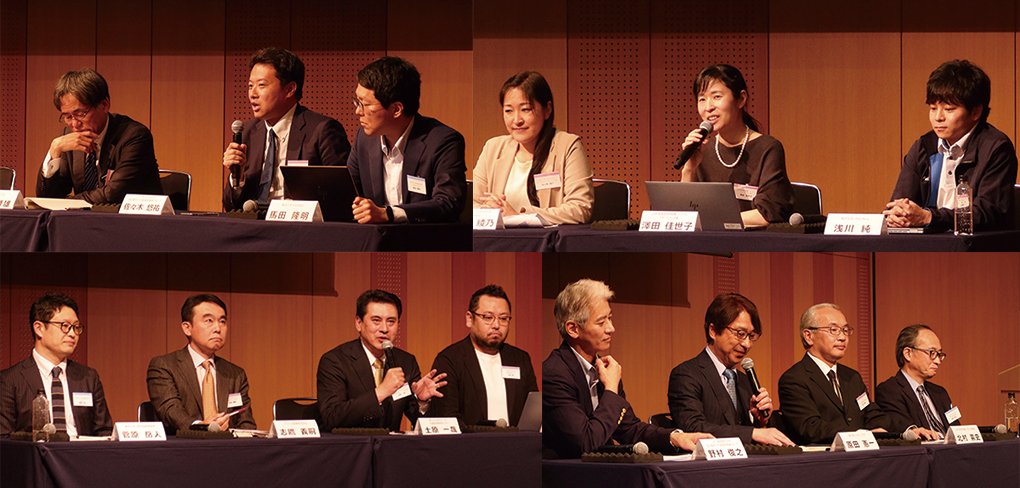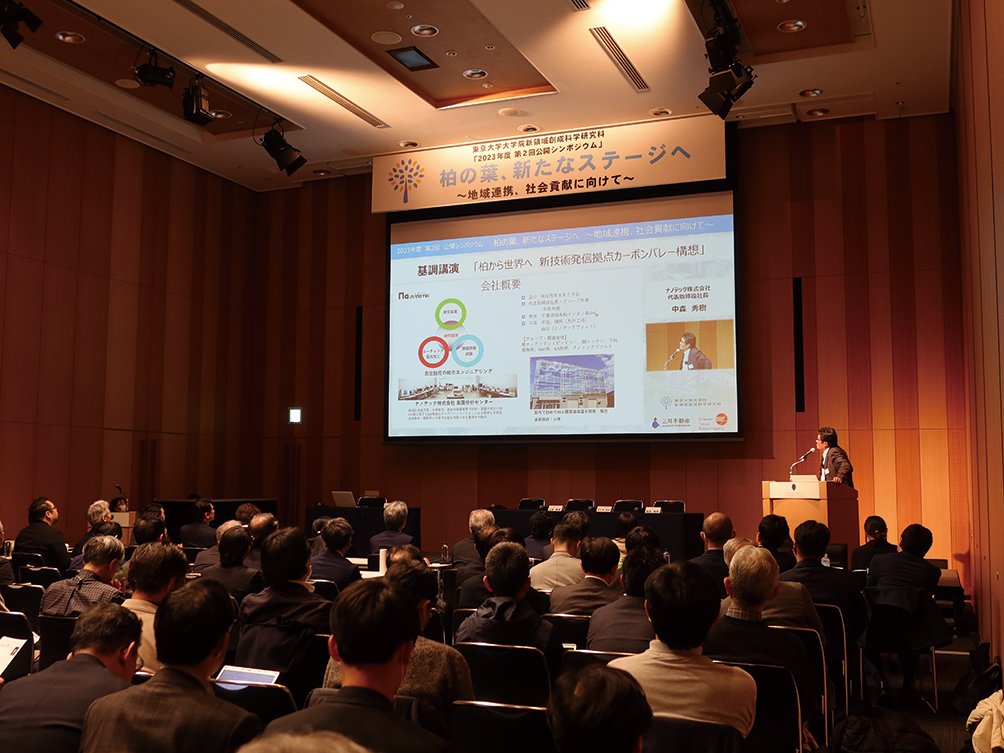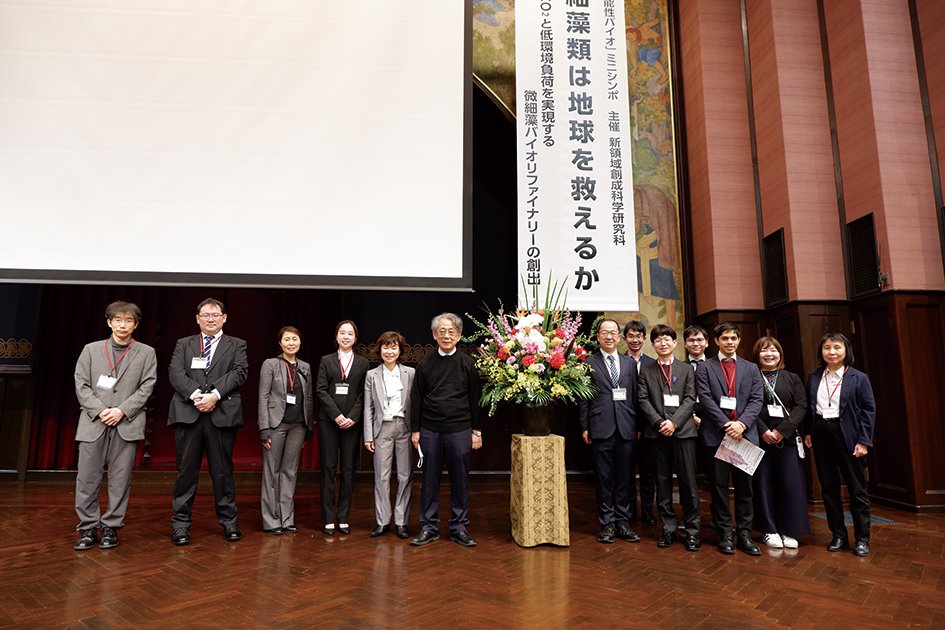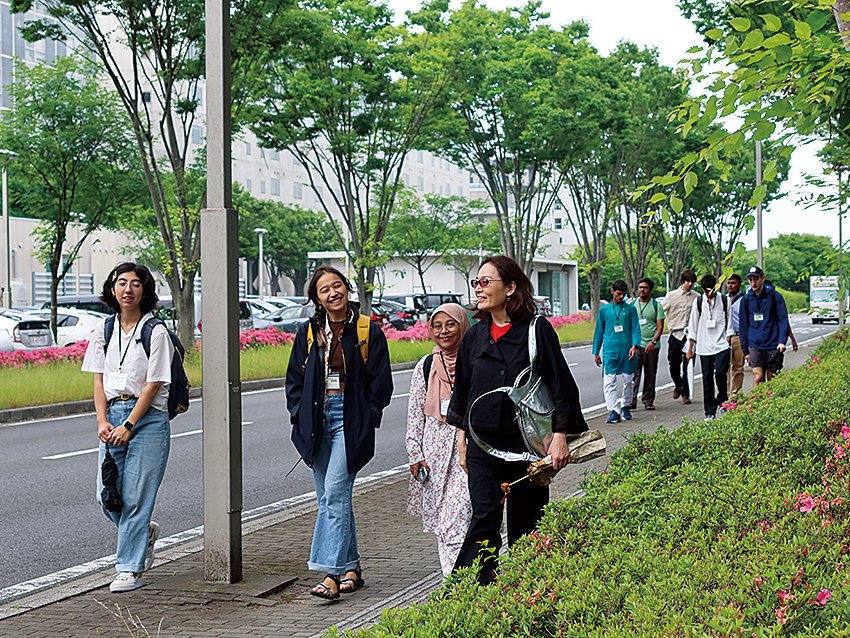Symposium “New Stage of Kashiwa-no-ha: Collaboration with the Local Community and its Contribution to Society”
https://sympo.edu.k.u-tokyo.ac.jp/


On March 25, the symposium was held by the GSFS at the Kashiwanoha Conference Center and online, with 178 participants discussing the revitalization of the Kashiwa-no-ha area and its neighborhood from the perspective of collaboration with local communities and its contribution to society.
The symposium commenced with an opening speech by Professor Tomochika Tokunaga, the Dean of the GSFS, and a keynote speech by Mr. Hideki Nakamori, the CEO of Nanotec Corporation, a global company developing technology in Kashiwa-no-ha.
During the panel session, panelists from industry, academia, and municipality discussed measures to unlock the potential of the Kashiwa areas on three themes: “How to create a community of a startup company in the city,” “Startup ecosystem,” and “Creating new industries and attracting various industries.” The symposium concluded with participants continuing exchanges after the event, which was good as the first step in “Creating a community,” one of the themes of the symposium.
This event was supported by Mitsui Fudosan and the Greater Tokyo Biocommunity.
The 14th Functional Bio Mini-Symposium
Can Microalgae Save the Earth? Creating a Microalgae Biorefinery for Low Carbon and Environmental Burden
https://park.itc.u-tokyo.ac.jp/functionalbio/

In the Program on Open Innovation Platform with Enterprises, Research Institute and Academic, Project Professor Hiroshi Mitani leads a research project developing microalgae mass production methods and refinery processes for medicine, food, bioplastic, and biofuel. The research outcomes were reported at a symposium held at the Yasuda Auditorium, the University of Tokyo, on March 27, with over 330 attendees. Furthermore, lectures were offered on topics, such as the environmental structure of the Earth, survival strategies for severe disasters and food crises due to global warming, and practical applications of microalgae, such as euglena and chlorella, which were discussed from various perspectives.
UTSIP Kashiwa

The 12th UTokyo Summer Internship Program in Kashiwa lasted for approximately 7 weeks from May to August. Eighteen participants were accepted in 16 laboratories where they received precise instructions on their selected research topics.
Participant voices:
“I experienced cutting-edge technology and methods.”
“I observed a powerful large-scale construction project on the field trip.”
“Listening to various studies of other countries from international students was fascinating.”
vol.44
- Cover
- The Potentials of Materials Science
- A Turning Point of Fusion Energy Research: Increasing Commercial Ventures for Practical Application
- Pioneering New Life Science with Parasitology and Bioinformatics
- For Acquisition and Proper Use of Water Environment Data
- GSFS Front Runners: Interview with an entrepreneur
- Voices from International Students
- On Campus/Off Campus
- Event & Topics
- Awards
- Information
- Relay Essay
